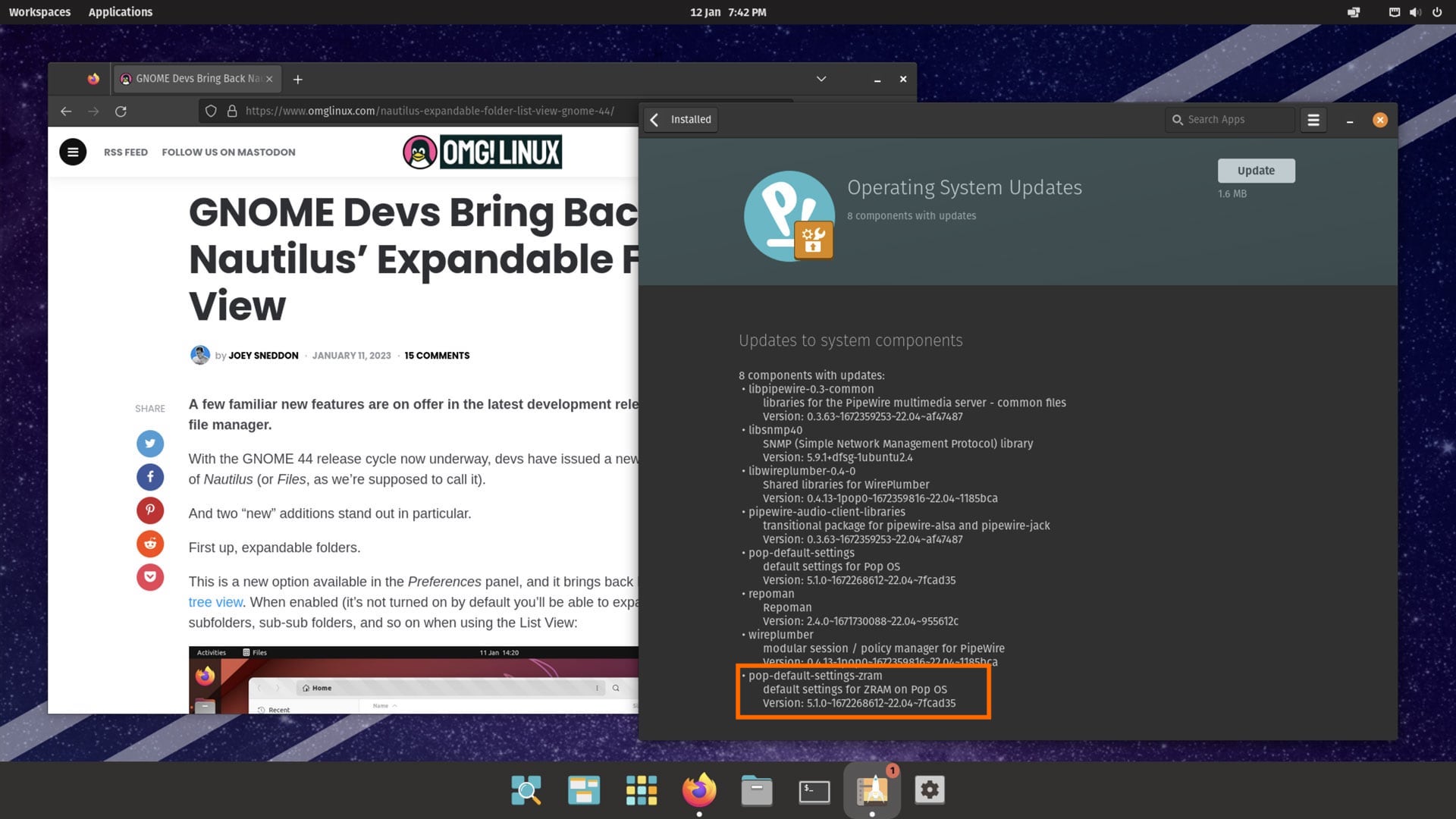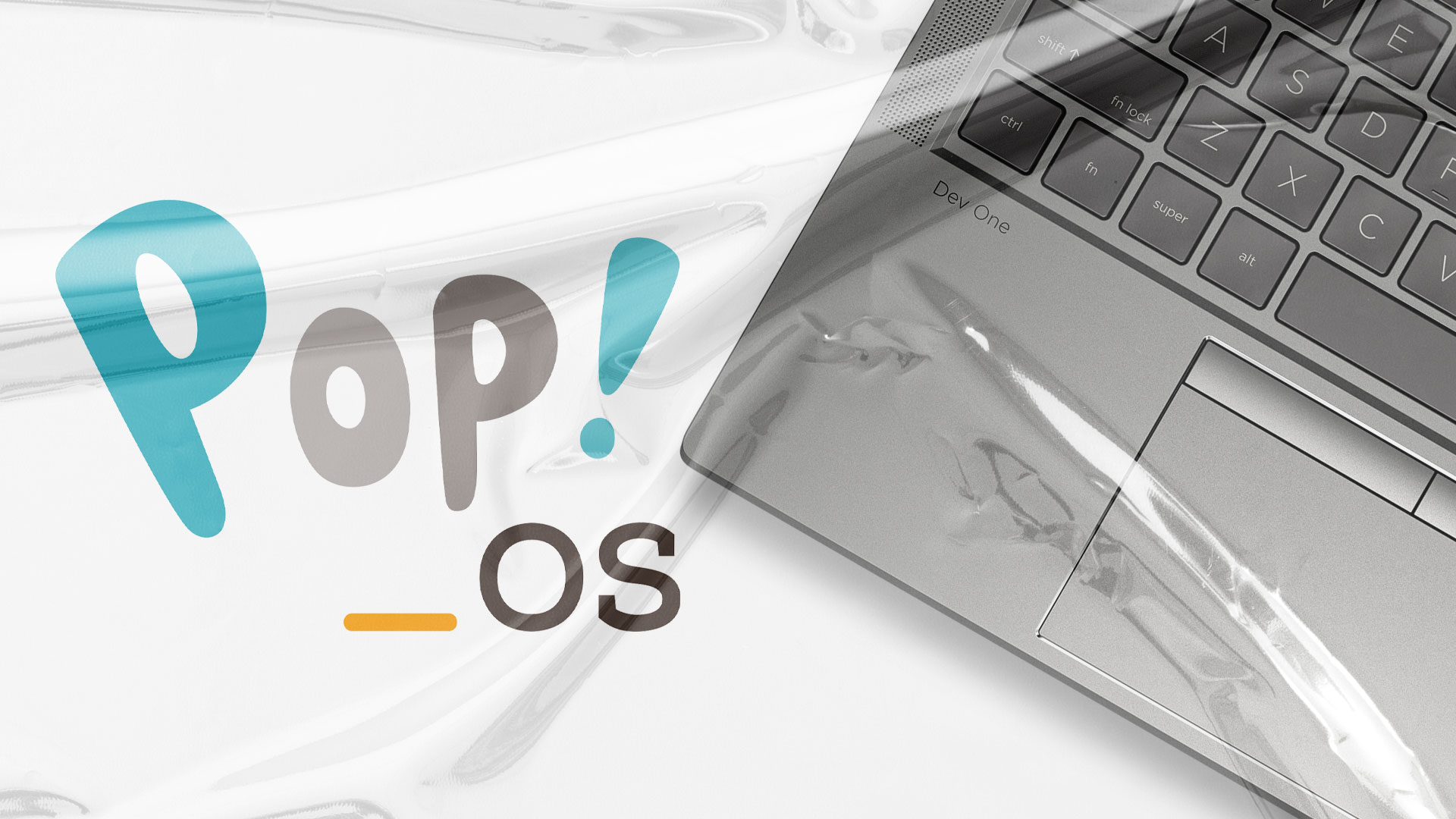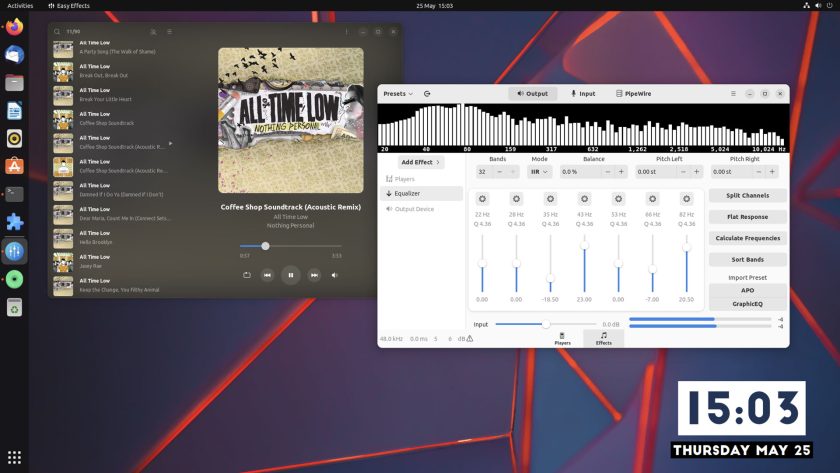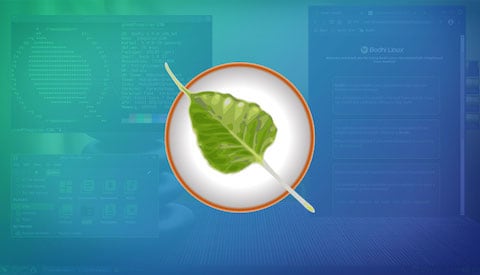
A small update rolling out to the Ubuntu-based Pop!_OS distro could make a big impact on system performance.
Pop!_OS now enables zram support by default — and to quote Sytem76 themselves the feature “actively compresses memory in the background, increasing the amount of free memory your system has available. This results in increased FPS in games, or faster simulations and compiler runs.”
Pretty nice, eh?
Instead of moving infrequently used data to a separate swap partition on disk (which is slow), zram compresses data, and keeps it in RAM (which is faster). On systems with lower amounts of RAM available zram allows more available memory to be used for runnings apps and games.
Though I’m yet to try it on Pop!_OS, zram is something I use on several devices as Fedora enabled zram a few years back. Though I don’t come bearing any graphs to back the enthusiasm up, it’s something I definitely think I feel the benefit of, even for basic computing needs.
Still, it’s not just those on lower-spec’d systems who’ll notice and improvements.
System76 devs say they tweaked the defaults to ensure everybody, even those on enviable systems with yewge amounts of memory, see some benefit — or at worst, no negative impact.
And that is an important thing to note.
In some situations zram can decrease performance, though the degree to which varies, and it is rarely noticeable outside of gaming (some complain of lower frame rates or increases latency).
But System76 don’t expect that to be the case with their implementation.
All said, this should put some extra pep in to the already performant Pop!_OS – I’d love to hear some first-hand experiences from those with the pop-default-settings-zram update installed, so dive down and share details in the discussions hole dug out below.





